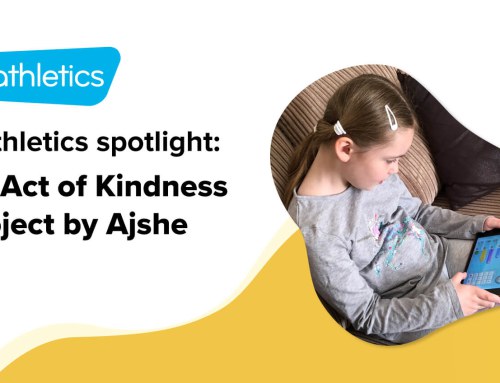You know that supporting your kids’ education is important. You might know that future careers are almost entirely dependent on strong mathematics skills.
What you don’t know is whether your involvement with your child’s mathematics development is helping or hindering them.
And that’s okay — because the research can’t seem to find an answer either.
While findings generally lean towards positive outcomes from parents getting involved in their kids’ education, this complex question has almost endless factors to consider including:
- parents views on education
- parents success with education
- genetics
- socioeconomic standing
- access to education
- cultural emphasis on education
- location
But there’s good news.
Studies that showed parental involvement with children’s education as beneficial had a few elements in common.
If you want to be confident, you’re actually helping the next time your kids pull out their workbooks, here’s what you should keep in mind:
Don’t be a dictator
Dictator parents are authoritarian (controlling) and punitive (punishing) — they try to control their children’s actions and punish them for not staying within these boundaries.
In cases where parental involvement has had no impact (or even detrimental impact — taking their children’s learning backwards!), dictator parents usually showed:
- low emotional support (no encouragement, no tracking or value placed on wellbeing)
- high psychological control (directing and enforcing thinking)
- high behavioural control (telling kids what to do, how to do it and when to do it).
They also used punishment as their main motivator (if you don’t do this, you will get punished, and the reward for doing it is not being punished).
Put simply — you can’t yell or bully your kids into being better.
There’s no amount of punishment that will help them on a test, and there’s no level of control you can muster to make them reach goals you’ve set.
There is a better way:
Be a leader
Leader parents are authoritative (dependable) and proactive (helpful) — they’re someone their children can rely on for help when they need it.
The opposite of their dictator counterparts, leader parents show:
- high emotional support (consistent encouragement and understanding of wellbeing)
- low psychological control (allow free and evolving thought, encourage questions)
- low behavioural control (provide the chance to make their own choices).
In an odd twist, leader parents are less reliant on motivators.
And that’s because leader parents nurture a life-changing mentality…
Support self-motivation
There are two types of motivation — extrinsic (external) and intrinsic (internal).
Extrinsic can be positive (like presents or sweets) or negative (yelling or banning/grounding).
Intrinsic is the more important of the two, and it revolves around the pleasure and pride in success. Where extrinsic motivators can run out (sweets don’t last forever and voices can break), intrinsic motivation is a reliable and powerful force that pushes children to keep trying.
Leader parents, whether aware of it or not, are nurturing the three characteristics that develop learners into self-motivators: competence, autonomy and relatedness.
Competence: This is your child feeling confident in their ability to do something well, or that they will be able to do it well in the future.
Autonomy: This is how independent your child feels, being able to face challenges in their own way, in their own time.
Relatedness: This is how relevant your child feels their work is, making a connection between what they’re doing and a greater purpose.
While encouraging your kids to thrive with a self-motivation mindset means they’ll rely on you less, there’s still more you can do:
Keep your involvement consistent
It can be depressing thinking how you could be doing more when it comes to involvement — there’s is always so much to do!
But it’s not about ‘more’ — it’s about making sure you’re doing what you can in the three areas of involvement that matter most:
Behavioural involvement
This is where you’re making connections and actively communicating, both at home and school.
At school, this might be setting up regular contact with your child’s teacher, volunteering or taking part in events.
At home, this means being available to help with homework, taking an active interest in what’s going on at school and talking through challenges.
Cognitive involvement
This is where you’re engaging your child’s mind in their home life.
It can be as simple as making sure they have access to books or providing them experiences like going to the museum or galleries, watching documentaries or taking part in workshops.
Personal involvement
This is where you express your attitudes and expectations around school and education.
Parents can be especially vulnerable in this regard when it comes to mathematics. It can be all too easy to slip up and say that you hated mathematics when you were at school or that you weren’t smart enough for it.
These simple words can have a huge knock-on effect for your child’s confidence and motivation for mathematics.
What you should be doing is focusing on why the topic is so important, why it’s valuable, and ultimately…
Make mathematics fun!
This isn’t the challenge you might think it is — there are great ways to make mathematics fun.
Mathematics bedtime stories, like Ernest, Twice My Size and Little Giant, play-based activity sheets and digital games can help your children make strong, lasting connections between enjoyment and reward and the world of mathematics.
Need help with mathematics in your home?
We’ve got you covered. Get unlimited access to Mathletics for 48 hours below, and bring the love of learning home.








